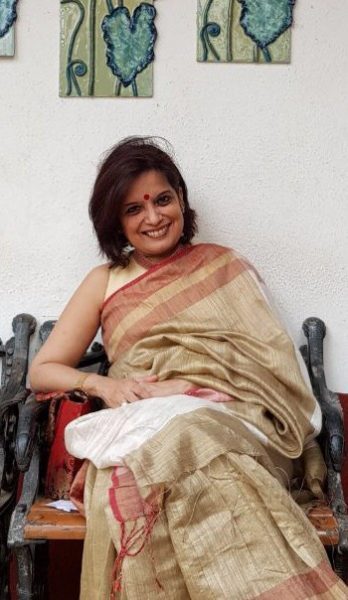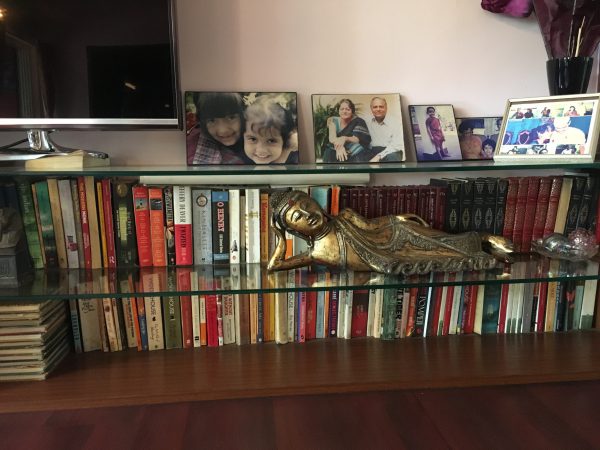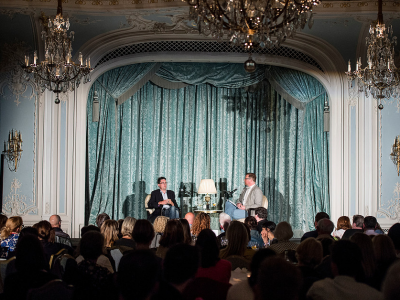Go With Me talks to Kavita Kane, the 51 year old Indian author of mythological fiction, about the value of mythology across cultures
Kavita Kane, the senior journalist with a degree in both English Literature and Mass Communication is famous for her strong female protagonists.
Since her first debut book in 2014, Karna’s Wife-The Outcast’s Queen, she has written many others inluding her the latest title, The Fisher Queen’s Dynasty (2017).
Kane first fell in love with mythology when she read and reread Amar Chitra Katha, an Indian comic book series including stories from epics, folklore and mythologies as a child. Her decision to write mythological fiction was more of an instinctive choice than a conscious one as she saw mythology as a medium to portray contemporary thoughts.
She said, “Even the smallest stories in our epics are fascinating, often linked and interweaved with other equally fascinating stories and it goes on, spinning a delightful web of stories, tales and anecdotes of human intricacies and relationship.”
All these emotions and experiences remain constant, felt through thousands of years later, making them immediately relatable and identifiable to us today
According to Kane, mythologies are evergreen because of their rich, literary narrative possessing deeper, symbolic and highly philosophical levels of interpretations. She comments that the epics are not stories of gods and goddesses but of Man and his follies and fallacies and flaws and his struggle with the outside and the inside, the people, his society, his family and his inner self. For this reason they are relevant even today.
Myth is the story of Man’s conflict and contest with the world he lives in: of love and loyalty, of hate and anger, rage and revenge, shame and humiliation, fear and jealousy, insecurity and greed, pride and honour, rivalry and war, peace and forgiveness.
Kane said, “All these emotions and experiences remain constant, felt through thousands of years later, making them immediately relatable and identifiable to us today.”
Kane believes that contemporary reinterpretations and re-visioning of the old stories in mythology incorporate attitudes and thoughts of current culture. Mythologies enable the writer as well as the reader to interrogate the layered identities within the stories and investigate human nature and its profound reality.

Kane in conversation with Go With Me
According to comparative mythology, Kane claims, all the world mythologies share the same human values, and the moral elements, though differing in both details and diversity, especially in philosophical content. She said, “The concept of The Flood, the Axis Mundi, ( the sacred place/object), the great sacrifice, the role of the hero and the god, magic and miracles are common and recurrent themes in most mythologies of the world.”
The moment the spotlight falls on these marginalised women characters, the narrative changes as they step out of the shadows
With more and more women like Emily Wilson, Chitra Divakaruni and Kane herself engaging themselves in the world of mythological fiction, the masculine narrative seems to be acquiring new perspectives. It encourages others to question and follow. It taps the huge potentiality of mythology as means to tell a story, to be used as a literary device: literature and mythology have always been intertwined.

Kane shares a picture of her bookshelf
Kane is known for fleshing out marginalised women characters as her protagonists. “The moment the spotlight falls on these overlooked characters,” said Kane, “the narrative changes as they step out of the shadows and we get to see them. I give these unsung characters a voice, to ask questions, to be heard and to get the answers they demand.”
As a writer, she feels that writing is always an inner journey. One might discover things about themselves by which they may be pleasantly or unpleasantly surprised! She concludes that for any aspiring mythological fiction writer the most important thing is to read and reference.
She said, “Do it and use it carefully upon which you will tell your story. Tell it well.”





